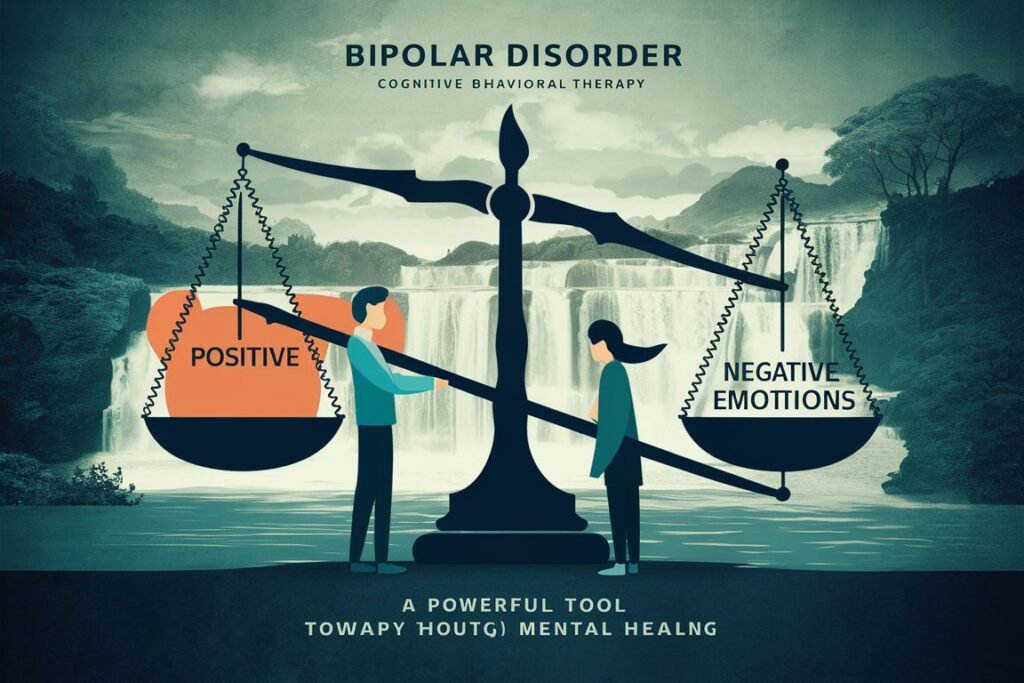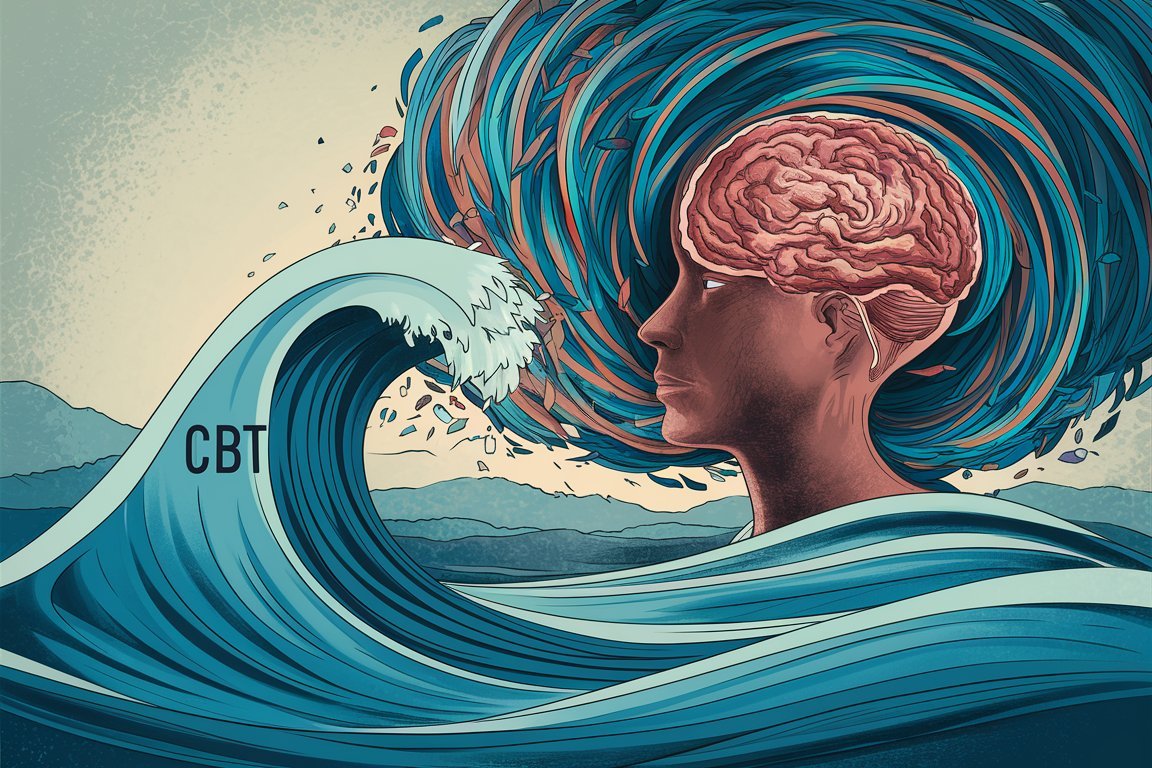Cognitive Behavioral Therapy (CBT): A Powerful Tool for Mental Well-being
Hey there, young explorers! Today, we’re going to talk about something that might sound a little fancy and complicated – Cognitive Behavioral Therapy, or CBT for short. But don’t worry, we’re going to break it down and make it easy to understand.
First of all, let’s talk about what CBT actually is. CBT is a type of therapy that helps people change the way they think and behave in order to feel better and cope with life’s challenges.
It’s based on the idea that our thoughts, feelings, and behaviors are all connected – like a big, tangled web. And sometimes, when we get stuck in negative or unhelpful patterns of thinking and behaving, it can make us feel really bad and make it hard to function in our daily lives.
That’s where CBT comes in – it’s like a toolkit that helps us untangle that web and create new, more positive patterns of thinking and behaving.
How Does CBT Work?
So, how exactly does CBT help us change our thoughts and behaviors? Well, it’s all about learning new skills and strategies that we can use in our everyday lives.
In CBT, you work with a therapist to:
- Identify negative or unhelpful thoughts and beliefs that might be contributing to your mental health struggles
- Challenge and reframe those thoughts into more balanced, realistic ones
- Learn new coping skills and problem-solving strategies
- Set goals and work towards positive changes in your life
One of the key principles of CBT is that our thoughts, feelings, and behaviors are all interconnected. So if we can change one of those things, it can have a big impact on the others.
For example, let’s say you’re feeling really anxious about an upcoming test at school. You might have thoughts like “I’m going to fail” or “I’m not smart enough to do this.” Those thoughts can lead to feelings of panic and dread, which in turn can make it hard to focus and study effectively.
In CBT, you would work with your therapist to challenge those negative thoughts and replace them with more balanced, realistic ones. You might say to yourself, “I’ve studied hard and I’m well-prepared for this test. Even if I don’t get a perfect score, I know I’ve done my best.”
By changing your thoughts, you can start to feel calmer and more confident, which can then make it easier to study and perform well on the test.
The Benefits of CBT
So, what are some of the specific benefits of CBT? Let’s take a look:
Reduces anxiety and depression
CBT has been shown to be a highly effective treatment for anxiety and depression, two of the most common mental health struggles that people face.
By learning to challenge negative thoughts and beliefs, and replace them with more balanced, realistic ones, people can start to feel less overwhelmed and more in control of their lives.
CBT can also help people develop new coping skills and problem-solving strategies, which can make it easier to manage stress and navigate life’s challenges.

Improves self-esteem and confidence
When we’re struggling with mental health issues, it’s easy to get caught up in negative thoughts about ourselves – like “I’m not good enough” or “I’ll never be able to do this.”
CBT can help us challenge those negative self-beliefs and build a more positive, realistic view of ourselves. By setting and achieving goals, and learning to recognize our strengths and accomplishments, we can start to feel more confident and self-assured.
Enhances relationships and communication skills
Mental health struggles can sometimes make it hard to connect with others and maintain healthy relationships. We might feel isolated, misunderstood, or like we’re a burden to the people around us.
CBT can help us develop better communication and interpersonal skills, so we can express our needs and feelings more effectively and build stronger, more supportive relationships.
By learning to challenge negative thoughts and beliefs about ourselves and others, we can also start to feel more open and trusting in our relationships.
Provides long-lasting benefits
One of the great things about CBT is that it’s not just a short-term fix – the skills and strategies you learn can provide long-lasting benefits for your mental health and well-being.
Unlike some other forms of therapy that focus more on exploring past experiences or unconscious thoughts, CBT is all about learning practical, actionable skills that you can use in your daily life.
So even after you’ve finished working with a therapist, you’ll have a toolkit of strategies and techniques that you can continue to use to manage stress, cope with challenges, and maintain your mental health.
What to Expect in CBT
So, what can you expect if you decide to try CBT? Here’s a general overview of what the process might look like:
Assessment and goal-setting
In your first few sessions, your therapist will likely spend some time getting to know you and your specific needs and concerns. They may ask you questions about your thoughts, feelings, and behaviors, and work with you to identify specific goals for therapy.
Learning new skills and strategies
As you continue with CBT, your therapist will teach you new skills and strategies for managing your thoughts, feelings, and behaviors. This might include things like:
- Identifying and challenging negative thoughts
- Practicing relaxation and mindfulness techniques
- Learning problem-solving and decision-making skills
- Setting and working towards goals
- Developing a self-care plan
Homework and practice
CBT is not just about what happens in the therapy room – it’s also about putting what you’ve learned into practice in your daily life. Your therapist may give you “homework” assignments to complete between sessions, such as keeping a thought diary or practicing a new coping skill.
Monitoring progress and adjusting as needed
Throughout the course of therapy, your therapist will work with you to monitor your progress and make adjustments as needed. You may periodically reassess your goals and strategies to make sure you’re on track and getting the most out of therapy.
Maintaining gains and preventing relapse
As you near the end of therapy, your therapist will work with you to develop a plan for maintaining your gains and preventing relapse. This might include identifying potential triggers or stressors, and developing a toolkit of strategies to use in those situations.
Is CBT Right for Me?
If you’re struggling with mental health issues like anxiety, depression, or low self-esteem, CBT might be a great option for you. It’s a highly effective, evidence-based treatment that has helped countless people improve their mental well-being and quality of life.
However, it’s important to remember that CBT is not a one-size-fits-all solution. What works for one person might not work for another, and it’s okay to try different approaches until you find what feels right for you.
If you’re considering CBT, it’s a good idea to talk to a mental health professional who can help you assess your needs and determine if it’s a good fit. They can also provide guidance on finding a qualified CBT therapist in your area.
Putting It All Together
Phew, that was a lot of information! But I hope you’re feeling more informed and empowered to take charge of your mental health and well-being.
Remember, CBT is a powerful tool that can help you change negative patterns of thinking and behaving, and develop new skills and strategies for coping with life’s challenges.
By working with a qualified therapist and putting what you’ve learned into practice in your daily life, you can start to feel more in control, more confident, and more resilient in the face of whatever life throws your way.
So if you’re struggling with mental health issues, don’t hesitate to reach out for help. Whether it’s through CBT or another approach, there are people and resources available to support you on your journey to greater mental well-being.
And most importantly, remember that you are not alone. Mental health struggles are incredibly common, and there is no shame in seeking help. You are worthy of love, support, and a life filled with joy and meaning – and with the right tools and support, you can get there.
So keep shining bright, young explorer – the world needs your unique light and resilience!













Leave a Reply